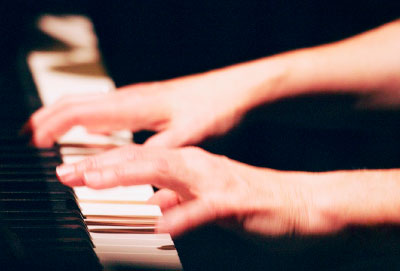The ends for which we live
 One lazy Sunday afternoon, my daughter Janaya, home from Columbia Bible College, was slouched on the couch with a book. “Whatcha reading?” I queried.
One lazy Sunday afternoon, my daughter Janaya, home from Columbia Bible College, was slouched on the couch with a book. “Whatcha reading?” I queried.
“The Celebration of Discipline,” came her reply.
“Ah, Richard Foster,” I acknowledged; “that’s all about musicians.”
She looked puzzled. “No, it isn’t,” came her clear but reticent response. “I’m halfway through and there’s nothing about musicians here.”
I asked her what musicians do to get better at being musicians.
“Listen to the classics?” she answered unconvincingly.
“What did your piano teacher say after your first piano lesson?”
“Practise.”
“Bingo!” I laughed as I gave her a thumbs up. “That book is all about practising.”
Growing capacity
Practising grows us in capacity. The more we practise, the more confidence, competence, and freedom we experience in our disciplines. In music, we exercise our listening, playing, and writing muscles by practising toward a goal. We listen to grasp and understand, we play to refine and communicate, we write to share our insights. This in turn grows our love and enjoyment of music.
Now think of a piece of music that has nourished you over the years. Then think about isolating a particular note. Every preceding note has led up to that moment, preparing that note to be exactly where it is at that time in that piece. And now that note is pointing to where the music is going.
Our lives are much like this music. Each day has prepared us for the moment in which we live right now. What we did yesterday, last week, and years ago has set up who we are today, and what we do today is shaping where we’re going tomorrow, next week, and to the end of our lives. What we’ve practised in life has led us to this place, and what we practise now will define who we become, just like that note in your favourite music.
It sounds almost inescapable, but is a simple fact of life. We are what we eat. We will be what we choose. The Bible reiterates: “If anyone builds on this foundation using gold, silver, costly stones, wood, hay, or straw, their work will be shown for what it is, because the Day will bring it to light” (1 Corinthians 3:12–13).
Like painting a house, getting a college degree, and running a race, our endeavours start with an end goal in mind.
So life begs the question, what end are we practising for?
The goal
For some of us, practising feels constrictive. It cramps our freedom and restricts our choices. For others, practising is the essence of freedom.
English writer Evelyn Waugh, when asked which comes first, inspiration or discipline, replied, “Inspiration! And thankfully it shows up every morning at 9 a.m.” Paul understood this when he encouraged us to “run in such a way as to get the prize” (1 Corinthians 9:24). The goal dictates our choices now if we are to win the race.
Practising is about being governed by a goal, a result, a consequence that is above and beyond oneself. To be a great cellist, one has to submit to the rigours of a disciplined musical life. To be a great listener, one must attune to someone else’s words being more important than one’s own. And to be governed by love, one begins to inculcate the biblical mandate to “love the Lord your God” and to “love your neighbour as yourself” (Mark 12: 29–31). Mirrored and simply put by philosopher Iris Murdoch: “We can only learn to love by loving.”
Technique and heart
One must make a distinction, though. All musicians play an instrument, but not all instrument players are musicians. One has to practise more than technique to fully engage what music is about. We’ve all heard music that is technically perfect but lacks soul. It’s like listening to calculus.
Conversely, we’ve heard children’s recitals where the heart of the performer beats louder than his or her technical expertise. Technique has to be subservient to our hearts, because what lives in our hearts sings through the music of our lives. By our fruits we shall be known (Matthew 7:16, 20).
Like the notes on a page of music, we practise the notes of our days. And what we’ve practised in the past has brought us to where we are now. And what we practise today will lead us to the goals we desire (Luke 12:34).
The ends we live for shape us. So let us sing the song of our lives with the endurance and hope of the Holy Spirit, offered through the grace of the Son, in the love of the Father. Amen.
Roy Salmond is a music producer, itinerant speaker, and worship leader who enjoys the cross-section of faith and the arts. Roy is a member of Cedar Park (MB) Church in Ladner, B.C.